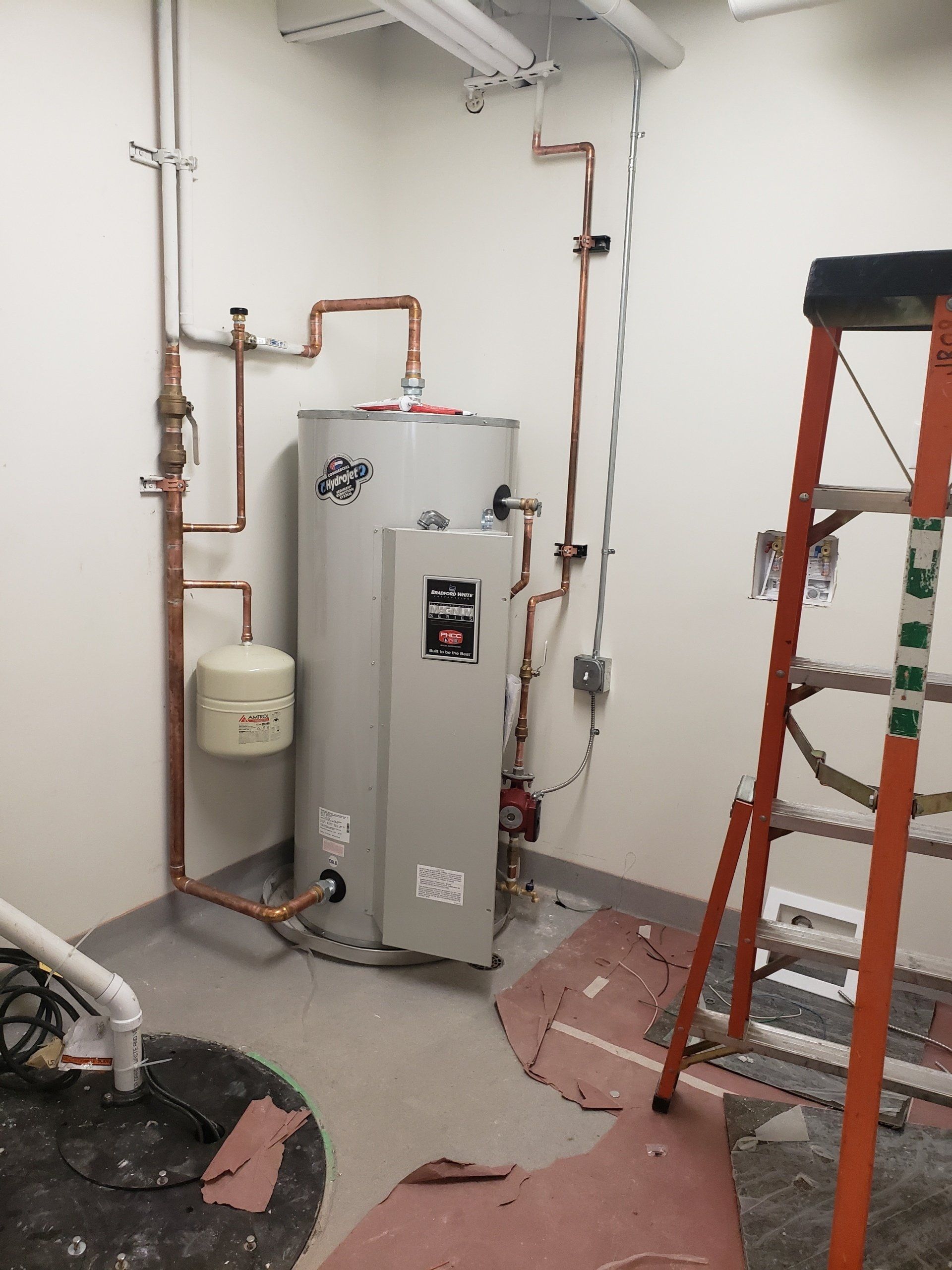Water Heater Repair
Water Heater Repair in Denver, CO, Solutions You Can Trust Anytime
Unexpected issues with a water heater can quickly lead to major plumbing concerns. Mile High Drain delivers expert water heater installation, repair, and maintenance services in Denver, CO, resolving everything from tank leaks to heating element malfunctions. Our licensed plumbers focus on accurate diagnostics and lasting fixes, so you don’t have to deal with repeat problems. If you’ve been searching “water heater repair near me,” we’re ready to respond 24/7.
Fixing Issues Before They Worsen
Proactive care goes a long way toward avoiding breakdowns. Our water heater installation, repair, and maintenance services cover detailed safety inspections, thorough sediment flushing to improve system performance, and timely replacement of worn parts to prevent unexpected failures. We also handle tankless water heater repair for units experiencing inconsistent temperatures, scaling, or control panel errors — ensuring your on-demand system delivers steady performance. Our veteran-owned team is trusted across Denver, CO, for providing timely solutions that keep water heating systems operating at their best.
How Long Do Water Heaters Usually Last?

Water heaters have a typical lifespan of between 8 and 12 years, but tankless units can last longer. You might want to consider a replacement if you begin to experience problems with your water heater and/or it's more than 8 years old.
Some factors that contribute to a water heater's longevity include:
- Unit quality
- Routine maintenance schedule
- Water heater type
We’re Here When Trouble Hits
From addressing minor issues to managing full system replacements, Mile High Drain has the expertise to resolve all types of water heater problems. Our water heater installation, repair, and maintenance services cover both traditional and modern systems, ensuring dependable solutions for each unit’s unique requirements. When it comes to tankless water heater repair, our plumbers address issues such as reduced flow or ignition faults with precision and speed. With our around-the-clock availability and dedication to quality work, you can trust that your system will be restored and ready for years of service — call 303-726-3888 to get started today.
What Causes a Hot Water Heater to Stop Working?
While age is one contributing factor when your hot water heater stops working, it's not the only culprit. Other reasons why a hot water heater may quit functioning include:
- High water pressure
- Corrosion and rust
- Sediment buildup
- Loose fittings
How to Tell if Your Water Heater Is Failing?
Although newer water heaters are more durable than their older counterparts, all appliances eventually fail and need to be replaced. Following are some telltale signs your water heater is failing.
Water Leaking
If you notice water pooling under your electric or gas water heater, contact a repairperson immediately. It may be due to incorrect water pressure, a faulty valve or loose connections. However, if sediment builds up, it can increase corrosion of the interior tank. Continued leaking could cause extensive damage and inflate your monthly bills.
Not Enough Hot Water
Your household may have expanded, creating a drain on your available hot water supply. If that's the case, you might want to consider replacing your water heater with a larger unit.
Another factor could be the result of scale buildup from hard water. With continued buildup, the unit's connecting pipes pass a limited amount of hot water.
Mineral Buildup
Hard water is one of the main culprits for increased mineral buildup of calcium and magnesium. If caught in time, a professional can clean out the pipes, allowing the water heater to function properly. You may also want to consider investing in a water softener, as increased mineral deposits wear out all water-functioning appliances.
Increased Hot Water Temperature
If the hot water temperature is too high, it may be that the thermostat is set too high. A faulty pressure relief valve could be another reason the water temperature might increase. However, if the thermostat and pressure valve are properly functioning, then the increased hot water temperature is probably due to sediment buildup.
Inconsistent Water Temperature
A professional can determine if inconsistent water temperature is attributable to a malfunctioning thermostat. A more severe problem could be a broken or damaged heating element, in which case the water heater should be replaced.
Discolored or Smelly Water
Your water heater's broken anode rod could be responsible for the unit's cloudy or smelly water. The anode kills bacteria in the water and removes rust.
Unusual Sounds
Whining, popping and boiling sounds may be attributable to pressure buildup and overheating. It's also another result of sediment buildup.
Low Water Pressure
Low water pressure is another symptom of sediment buildup from scale deposits.
Contact Mile High Drain today if you are seeing any of these issues with your water heater!



